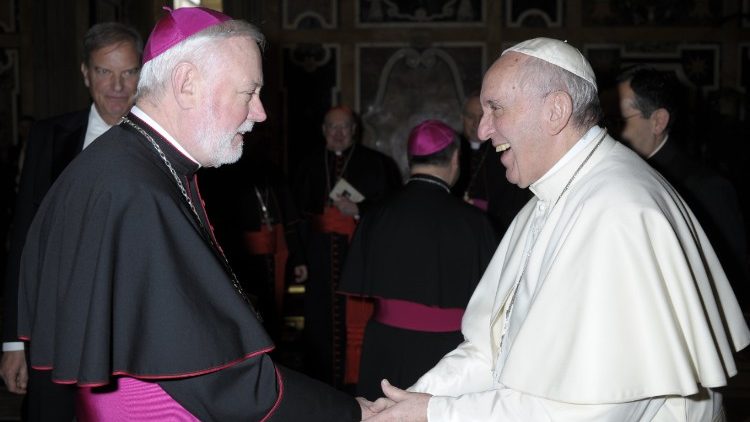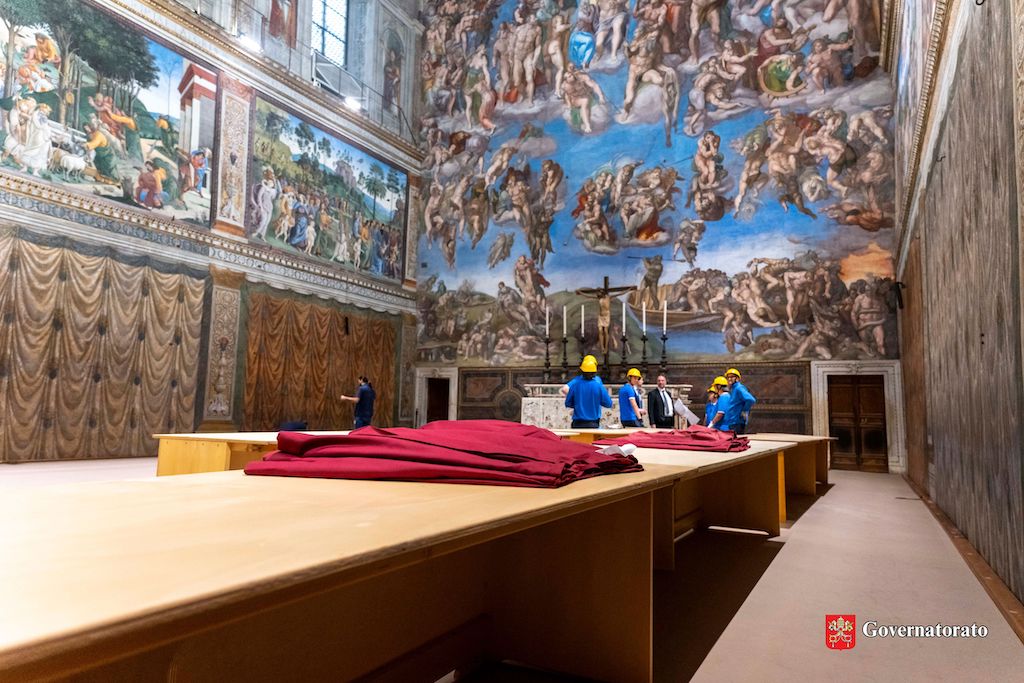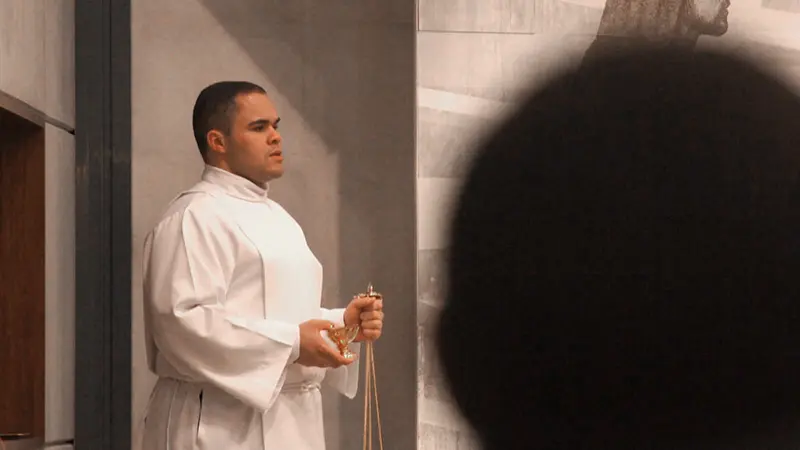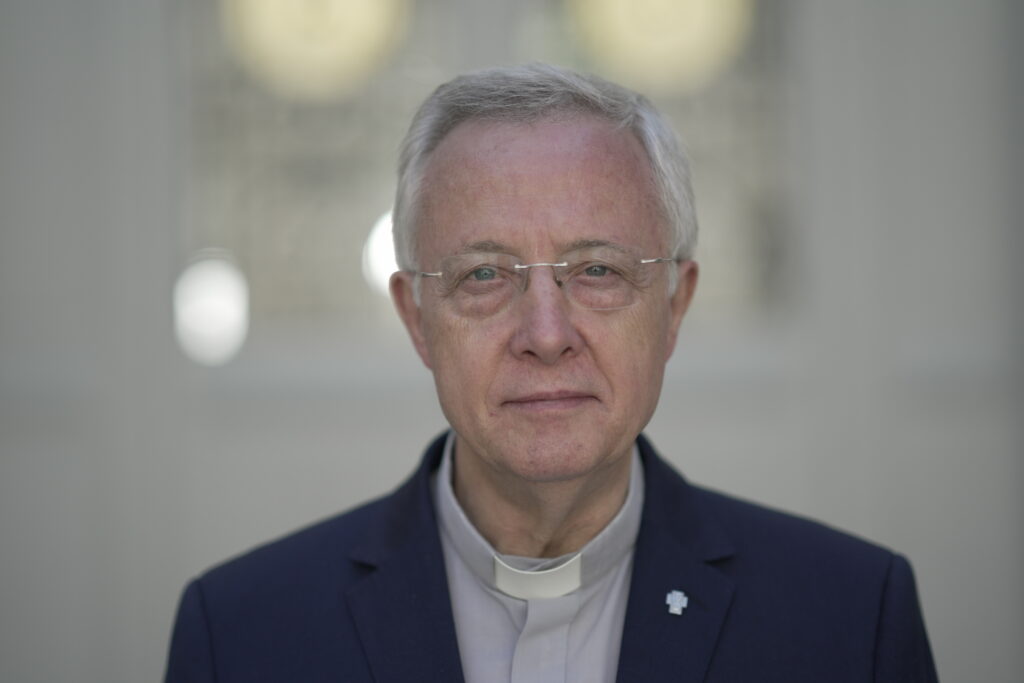The Vatican diplomat along with Rector of the Pontifical Lateran University, Prof. Vincenzo Buonomo, engaged in a dialogue on “Today’s Challenges to Religious Liberty,” and were introduced by a reflection of Ambassador Sebastiani.
EXAUDI asked Archbishop Gallagher what the Holy Father’s concrete hope is for the imminent encounter, and to what extent he believes the hoped-for visit of the Pontiff to the beleaguered nation could be affected by this meeting.
“The Holy Father, in inviting the Christian leaders from Lebanon to come to Rome and to meet and be with him,” the Vatican’s foreign minister explained, “was his response to an appeal from them. One of them reached out to him, and he replied in this way.”
“Obviously the meeting,” he said, “will try to discuss and analyze the very complex situation in which Lebanon finds itself, politically, religiously, and socially. Also economic too, but obviously being churchmen, we don’t necessarily have very much expertise as is well known in matters of finance, but they’re going to try to look at everything.”
Spiritual Moment, to Offer Lebanese People Courage
Clarifying it “is not just a talk shop,” he reminded it will be “a spiritual moment, to be with the Pope, to pray, try to offer to the people of Lebanon that courage that they need at this time, that willingness to overcome their problems.”
“I think it will be an appeal to its political leaders,” he underscored, “to make progress: above all, that they should be able to form a government and to lead the people out of what is a very dark moment.”
When La Croix asked whether the invitation eventually could also be extended to also non-Christian leaders, he responded: “I think he has made his invitation. I think it’s Christian leaders. I don’t think he is, at the moment, thinking of that.”
“We do think stage by stage. But of course, when he eventually goes to Lebanon, I am sure he will be having interreligious meetings as well.”
Trip by Year End, Unlikely
EXAUDI asked the Vatican’s foreign minister whether the highly anticipated trip to the Middle Eastern nation before the end of the year, or given everything, whether that would be too complicated.
“Well, I think the end of the year is coming up very quickly, and he [Pope Francis] has maybe one or two other things planned. And then, September and October are always very full of meetings, and if we completely come out of the COVID, then I think things will just triplify and it will become more and more difficult.”
“So I don’t know, but we’ll wait and see,” he noted. “I think we have to wait and see what the fruit is of this meeting will be on July 1st, and what the expectations are, and what encouragement they offer to the Pope with regard to the meeting. We’ll see then.”
Combatting Against Hemorrhaging Christian Communities
Agreeing this is a first step, Archbishop Gallagher noted: “Yes, that is the way we do things: step-by-step because you cannot foresee the future too easily, particularly in these complex political and social situations, but there is no doubt about it that the people of Lebanon need solidarity.
“It’s an object of concern because it is a democratic country, it has a constitution that tries to bind the people together in its governance and also we have the problem that too many places in the Middle East have hemorrhaging Christian communities.”
For this reason, he stresses, “we are trying to do something. That is not to say we are going to be successful, but there is no doubt about it: we are trying to secure a future for some people, for our Christian communities in Lebanon.”
“It is not going to be easy,” he said, recognizing: “There are a lot of material things that are going to have to be faced as well: the running of the schools, the hospitals, the dire situation of ordinary life in Lebanon–it is very difficult. Also, on top of that, we have refugees and what they call the displaced Syrians.”
“It’s a very difficult situation, but hopefully this meeting will help,” he said.
 (EN)
(EN)
 (ES)
(ES)
 (IT)
(IT)






